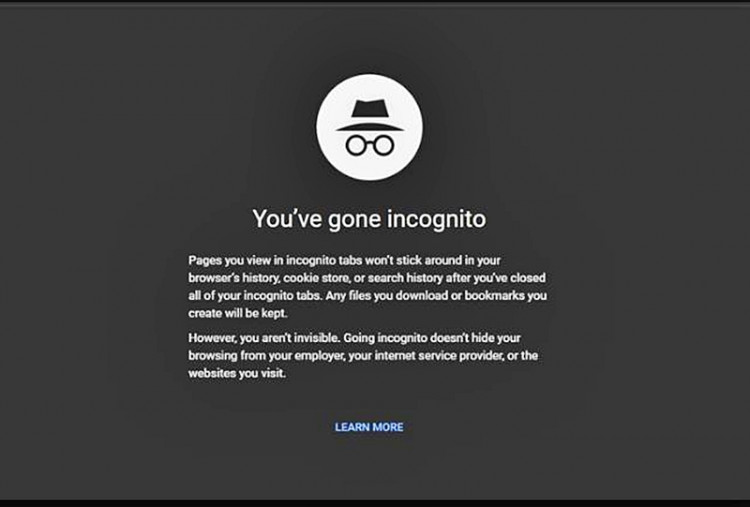Going "Incognito" on Google Chrome, the world's top web browser, won't protect you from the bad guys out to steal your money or malign you. It only won't track a few of the things you do online. The rest is there for the online world to discover.
This widespread misconception about going Incognito is a danger in itself, according to a study from the University of Chicago and the Leibniz University Hanover in Germany.
Researchers from these institutions recently published the results of a study, which found that many of its 450 participants thought "Incognito Mode" or "Private Mode" in a web browser protected their online activity much more than it does, and offered more protection against viruses and malware, among others.
In the Incognito Mode, Google Chrome says it doesn't save your browsing history, cookies and site data or information entered into forms. This, however, doesn't mean that data, including the websites you visit, won't be available to a third party such as the internet provider or your employer.
An abundance of people also seems to believe going Incognito or Private can do much more than they actually do. Here are a few of the astounding findings and misconceptions from this research study:
* 46.5 percent of participants believe bookmarks saved in private mode won't persist in later sessions when they actually do.
* 40.2 percent of participants thought websites can't estimate a user's location while in private mode. That's a misconception. Use a VPN if you want to make it harder to estimate your location.
* 27.1 percent of participants believe private mode offers more protection against viruses and malware than standard mode. This is another misconception since any files you download and open on your computer might still be infected with malware or viruses.
* 22 percent, 37 percent and 22.6 percent of participants wrongly believe that ISPs, employers and the government can't track them in private mode. If you're on someone's network, chances are the network operators can see what you're doing.
The study also suggests that 56.3 percent of participants incorrectly believe browsing in private mode hides your search history. Not true. Google can still log a user's search and save a copy of that query online, and not on your computer.
The moral of it all: it's safe to assume that what you're viewing online can be found or viewed by others, especially if you're using a network at your office or at school, or downloading files.






